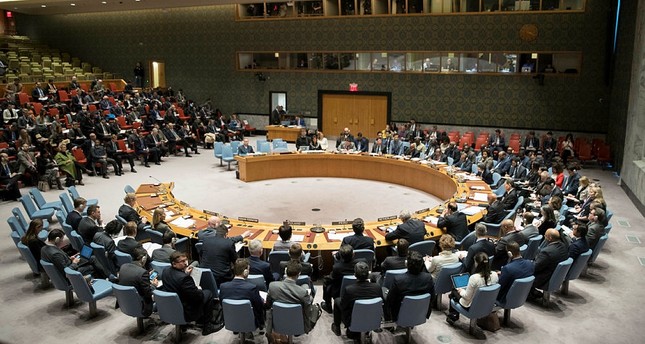Alwaght- The United States has been humiliated at a UN Security Council (UNSC) meeting it called to discuss the latest events inside Iran.
Contrary to expectations by Washington, session saw US criticized by its own allies who censured attempts to involve the UN Security Council in Iran’s domestic affairs and seeking to link those issues to the 2015 multinational nuclear deal.
During Friday’s session, hawkish US Ambassador to the UN Nikki Haley gave an exaggerated account of a series of scattered riots in some parts of Iran last week, and said Washington would remain steadfastly behind the Iranian “protesters,” attempting to bring other UNSC members onboard with Washington against the Islamic Republic.
But Haley’s political show soon went down the drain as her hostile comments against Iran was met with a cold response from Russia, China and France, three veto-holding UNSC permanent members, and several other council members, including Sweden.
US Diverting attention from important global issues
By calling a UN Security Council meeting with the demand to support anti-government protesters in Iran, the US is trying to bend the UNSC mandate, which does not deal with countries' internal affairs, Russia's UN envoy Vassily Nebenzia has said.
“We obviously regret the loss of lives as a result of the demonstrations that were not so peaceful. However, let Iran deal with its own problems, especially since this is precisely what’s taking place,” Nebenzia added.
The Russian diplomat slammed the US for diverting attention from important international issues the UN Security Council should be addressing.
The call to support anti-government protesters is another attempt to dismantle the hard-won international nuclear deal struck in 2015, Nebenzia argued.
Iranian situation poses no threat to world security
The Deputy Chinese Ambassador Liu Jieyi pointed to the UN charter and said “The Iranian situation does not pose any threat on international peace or security, nor is it on the agenda of the Security Council. Discussing this domestic situation in Iran by the Council is a practice that is not in line with the Council's responsibility as outlined in the UN charter. Doing so does not help resolve the domestic issue of Iran.”
The French Ambassador to the UN, Francois Delattre, also said: “However worrying the events of the last few days in Iran may be, they do not constitute per se a threat to international peace and security... We must be wary of any attempts to exploit this crisis for personal ends, which would have the diametrically opposed outcome to that which is wished.”
Kairat Umarov, Kazakhstan's representative who also serves as the council’s president, said that his country considered the events unfolding in Iran to be “a domestic issue that did not fall under the mandate of the Security Council.”
Meanwhile, Sweden’s representative Irina Schoulgin Nyoni emphasized that Stockholm had “reservations on the format and timing of this session.”
She further supported the JCPOA, saying the nuclear accord’s “continued implementation was crucially important.”
Bolivia’s representative also called the request “a blatant attempt by some missions to bring to the attention of the Security Council to issues that do not fall into the purview of this body,” as the events in the Islamic Republic of Iran “do not pose a threat to international peace and security.”
The Bolivian envoy warned that "political interventionism, and regime change only ever lead to devastating humanitarian, social and economic consequences.
US abusing its powers
Iran's Ambassador to the UN, Gholamali Khoshroo, reiterated the point that Tehran officials have been underlining as the protests unfolded: The rioters are being influenced from outside the country.
He added that, the UN Security Council’s emergency meeting on the recent protests in Iran at the request of the US “discredits” the council and demonstrates how Washington “abuses” its powers as a permanent member to forward its own agenda, says Iran’s envoy to the UN.
Khoshroo expressed regret that the council had been forced to reconvene and discuss an issue that was “purely domestic.”
“It is unfortunate that despite the resistance on the part of some of its members, this council has allowed itself to be abused by the current US administration in holding a meeting on an issue that falls outside the scope of its mandate, putting on display the failure of the council to fulfill its real responsibility in maintaining international peace and security,” he asserted.



























